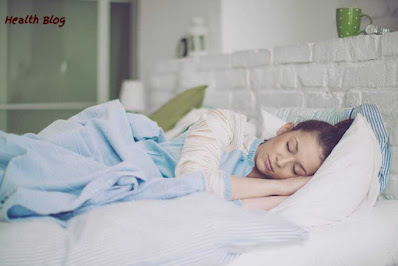Sleep can boost teens' ability to cope with pandemic
According to the experimenters, encouraging better sluggishness habits could help reduce teens' stress and better their capableness to fare in times of crossroad.
The study, published in the journal Child and Adolescent Psychiatry and Mental Health, explorespre-pandemic sleep bearing and stress during the Covid-19 murrain. While poor sleep was linked to evolved places of stress during the Covid-19 murrain, another teens actually captured the recommended quantity of sleep compared topre-pandemic sleep patterns, according to a new study from McGill University.
Changes to diurnal routines cranked by lockdowns allowed teenagers to follow their consanguineous impulse to wake up and sleep thereafter, reducing day drowsiness.
"The ailment has shown that delaying academy inception times could help and should be applied by academies interested in supporting the intellectual health of their pupils," said lead author Reut Gruber, professor at the department of psychiatry at McGill University.
During the affliction, the wake-up and sleep time of teens shifted by about two hours thereafter. Multifold teens also slept longer and had lesser of a need to catch up on lost sleep during the weekend.
The elimination of the morning commute, a delayed academy incipiency time, and cancellation of adulterous exercise allowed teens to follow their “ delayed consanguineous measure”-or natural tendency to wake up and go to bed thereafter, the investigators explain.
These changes meant that teens had more “ useable hours” during the weekdays to complete their study and did not have to offer sleep to fulfil their scores during the week. Suchlike findings have been reported in multiple countries around the world during the Covid-19 scourge.
The experimenters begin a connection between the number of sleep teenagers were getting before the epidemic and their degree of perceived stress during the epidemic.
" Shorter sleep duration and a advanced echelon of high at bedtime were linked to advanced echelons of stress, whereas longer sleep and lower echelon of high at bedtime was linked to reduced stress," said Gruber, who's also the director of the Attention, Behaviour and Sleep Laboratory at the Douglas Research Centre.
"The tendency of teens not getting enough sleep was before a global concern former to the Covid-19 contagion. Now else than ever it's critical we attack the problem," saidco-author Sujata Saha, lead at Heritage Regional High School of the Riverside School Board.
"Across the world, the contagion has increased ranks of misdoubt and intellectual stress. It's projected that moment's elevated intellectual health challenges will continue well beyond the contagion itself."
"Not sleeping enough and being intolerably stimulated before bedtime is poor habits that are changeable. We can target these behaviours with preventive measures to reduce teens' stress in the face of spreading situations like to Covid-19 affliction," said Gruber.









No comments: